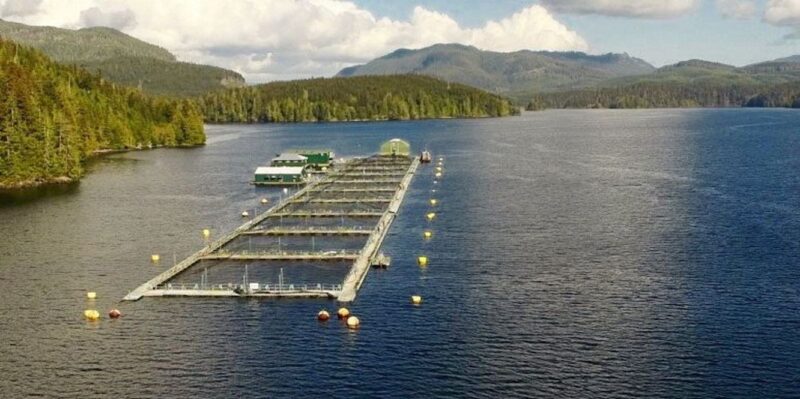Canada mulls longer licence terms for salmon farmers
Proposed conditions of licence changes include extension of marine aquaculture permits for a period of between two and six years.
By Fabian Dawson
SeaWestNews
Salmon farmers in British Columbia said they are cautiously optimistic as the Federal Government considers extending their licences to operate for a period of between two and six years, pending a transition process for the industry.
The Department of Fisheries and Oceans (DFO) is also considering other changes to the conditions of licence, as the permits to operate the farms are set to expire at the end of June.
“Overall, the technical staff from the producer companies are cautiously optimistic about the proposed conditions of license changes and are participating in a technical working group to discuss each proposed change,” said Michelle Franze, spokesperson for the BC Salmon Farmers Association.
“At this point, we do not know how long the licences will be issued, but DFO has stated between two and six years,” she told SeaWestNews.
The DFO has called for general input on the proposed condition of licence changes, which is separate from the public and stakeholder consultation process for a Transition Plan.
The Transition Plan, expected later this year, will impact more than 4,700 aquaculture-related jobs and $1.2 billion in economic activity annually in British Columbia.
Among the proposed changes to the conditions of licence include reducing the threshold levels of sea lice at the farms, improved record keeping with the use of photos and videos of seals and sea lions that get entangled in the farms’ nets and requiring licence holders to share more information on the deployment of new technologies.
As the new conditions of licence are being finalised, The Coalition of First Nations for Finfish Stewardship (FNFFS) is calling for the immediate renewal of long-term salmon farm licensing to encourage investments in emerging technologies as well provide Indigenous communities time to conduct research and trials on new technologies in their territories.
The long-term licensing proposal is part of a First Nations-led, science-backed, and industry supported plan for salmon aquaculture that is responsible, realistic, and achievable, said the Coalition.
Currently in BC, all existing salmon farms are supported by the First Nations communities that they operate in.
The BC Salmon Farmers Association (BCSFA) has said a predictable licensing regime based on partnerships with First Nations and science-based aquaculture decisions, will create almost 10,000 new jobs and add a cumulative $44 billion in new economic activity to propel Canada’s Blue Economy.
But the short-term licences and the uncertainty that the transition process has created have severely impacted investment in the sector, said the association.
“A longer-term transition process will result in significant investments into innovation and positive outcomes for the sector and security for the employees and coastal communities in which we operate,” said Franze of the BCSFA.
(Image courtesy of Mowi shows one of its salmon farms in British Columbia)

